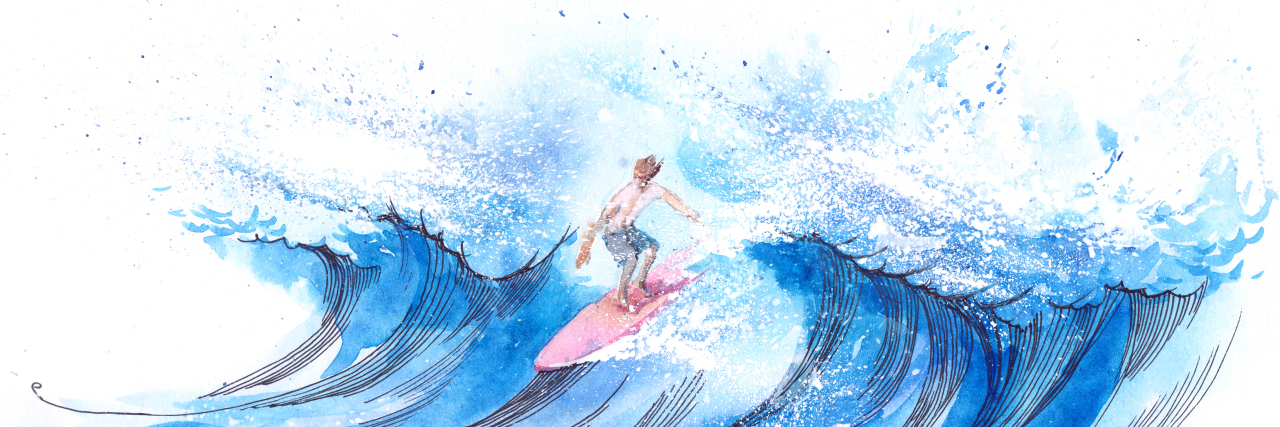It’s not uncommon for people to resist feeling negative emotions. Most of us do at times. It’s natural and human.
We resist because we don’t want to wallow. Maybe we worry about entering a negative state and then never leaving it.
We often fear what we don’t know. And our culture doesn’t teach us to know our feelings. Especially not the negative ones. It teaches us to look away.
“We often don’t know how we feel. Many of us know our own emotions about as well as we know a city we are visiting for the first time,” writes Sheila Heen, author of “Difficult Conversations.”
I don’t exactly know where our culture’s tendency to feminize and trivialize emotions came from, but I sense that it’s from the same place that birthed our proclivity to belittle the things we’re afraid of or don’t understand.
Feelings can be complex — shifting and rearranging like tectonic plates beneath our awareness, at times transmuting like wily invisible forces before we can put a finger on them. Sometimes before we’ve had the chance to tend to one, it’s already multiplied like the heads of Hydra.
It’s no wonder that many of us have learned to be afraid of them.
Early on in life, particularly for people who come from dysfunctional or emotionally inconsistent homes, we develop the habit of stamping these beasts out as soon as they surface — rather than work through them. Pharmaceutical companies and modern psychiatry tend to encourage the obliteration approach, often prescribing pills after achieving only a cursory understanding of the issues. Patients are given seemingly instant fixes to complex problems that, when dealt with properly, take many hours of unpacking and parsing out.
A Lyft passenger I once drove (one of my most memorable rides to date), said to me: “We try to fix things before understanding them. Without ever understanding them. It’s such a part of the American culture. Quick fix, make it go away. It’s like we think tending to emotions the proper way will come at the expense of success. Emotions are messy and distract from productivity, so stuff them down.”
Here’s the thing though: feelings don’t have to be scary. The formidable spiraling, I think, often happens when when we’ve avoided a feeling for too long. And then once we do finally allow ourselves to feel it, the delay has dialed up its intensity significantly.
Our emotions, especially when you’re living with a chronic illness, heal when they’re tended to. It’s important that we open ourselves to them. That we ride the wave of whatever comes our way, rather than forbid access to all but the most convenient of them.
Turn towards the unpleasant, for the reward of authenticity. Authenticity comes with unpleasantness, almost always. And that slow burn authenticity is healthier for us in the long term than whatever short-term protection is offered by avoiding present moment unpleasantness.
There’s honoring what you’re feeling. And then there’s looking for things to stay negative about. A vast difference exists between the two.
Acknowledging the negative doesn’t mean that we’re not also focusing on the positive. It just means that we’re accepting both sides of the emotional spectrum. It means we’re not denying either as part of our existence.
As people living with chronic illnesses, we will encounter many waves, positive and negative.
If it’s positive? Great! Let’s hop on that surfboard.
Sometimes people don’t. A positive thing happens and they watch the wave from afar, rather than surfing it. I see this as a mistake too.
When you start feeling positive about something, keep feeding fire to those thoughts. Allow the feeling to flourish and expand within you. Don’t cling to it; just be present with it. Allow the momentum to carry you.
Same with the negative. When you start feeling down about your health, don’t immediately rush to distract yourself. Allow the thought. Permit the feeling. Sit with each of them. Let them do what they need to do. Accept what you feel, then allow that wave to take you. It will run its course.
Another option for the negative is: watch from afar. Don’t hop on the surfboard. This can sometimes be a form of healthy detachment.
What I think is ultimately the least helpful long-term, though, is to pretend the wave is not there. To either convince yourself there is no wave, or to put up a wall against it.
Getty image by AnkDesigns.

